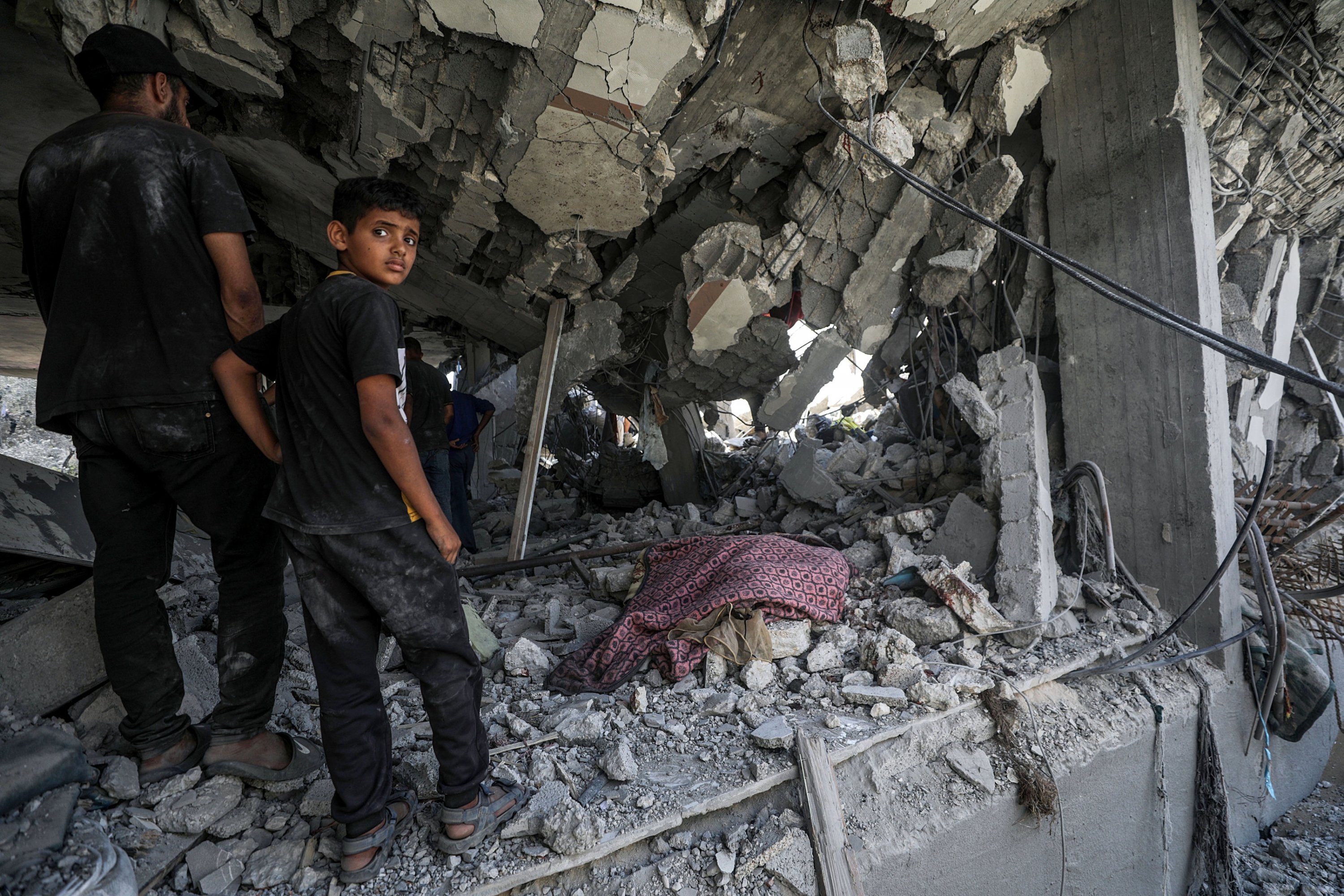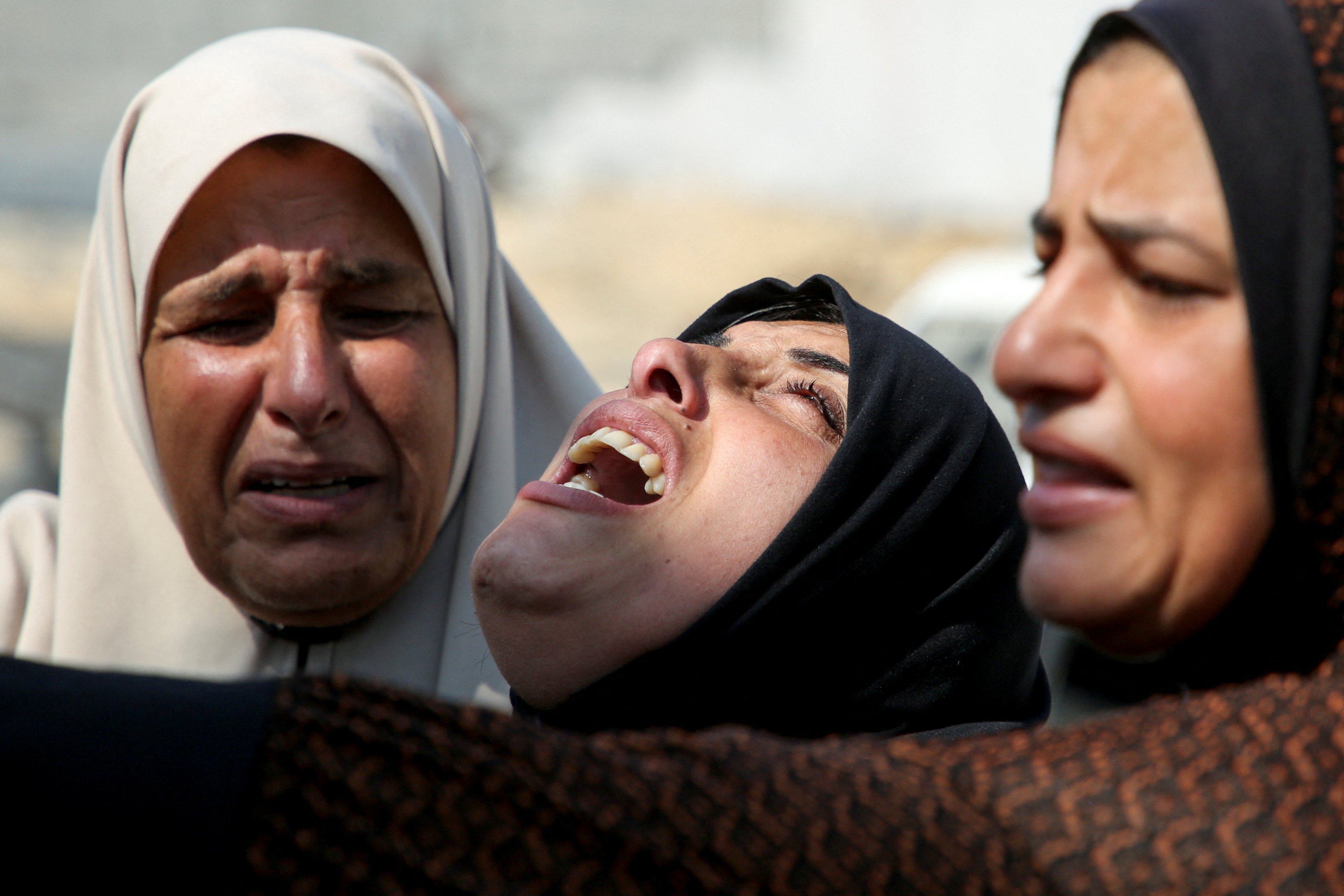© Turkuvaz Haberleşme ve Yayıncılık 2025
European nations persist in supplying arms to Israel amid its ongoing military operations in Gaza, despite accusations of genocide at the International Court of Justice (ICJ).
According to the Stockholm International Peace Research Institute (SIPRI), France, Italy, Germany and the U.S., collectively accounted for 81% of arms imports to the Middle East from 2019 to 2023.
SIPRI, an independent global institute headquartered in Sweden, focuses on researching conflict, armaments, arms control, and disarmament.
Israel's military spending increased by 24% to 25.25 billion euros ($27.5 billion) following its attacks on Gaza, making it the second-largest arms spender in the Middle East.
From 2014 to 2022, the European Union granted export licenses to Israel worth about $6.8 billion.
These weapons are suspected to have contributed to the deaths of more than 38,000 civilians in Gaza, including 10,000 women and more than 15,000 children.

While some European countries, including Belgium, Italy, the Netherlands and Spain, decided to halt arms sales to Israel, press reports suggest that this trade has continued.
Germany remains Israel's largest European arms supplier, providing approximately 30% of Israel's imports between 2019 and 2023.
In 2023, German arms deliveries to Israel increased tenfold to 326.5 million euros, peaking after Oct. 7.
Most of France's arms exports from 2019 to 2023 went to countries in the Middle East, accounting for 34% of its total exports.
The country provides components for Israel's missile defense system, known as the Iron Dome.
Despite laws restricting arms sales to human rights violators, Italy sold 2.1 million euros worth of weapons to Israel in the last quarter of 2023.
Italian Defense Minister Guido Crosetto claimed there have been no new arms transfers to Israel since Oct. 7, although reports indicate ongoing sales by companies such as Leonardo.
Italy's export licenses to Israel from 2014 to 2022, including for warships, small arms, artillery, aircraft, and ammunition, were worth a total of 114 million euros.
The U.K. has issued more than $576 million in arms licenses to Israel since 2015.
Additionally, 15% of the materials used in the production of the F-35 fighter jets purchased by Israel since 2016 are supplied by British companies, according to a report by the London-based charity Action on Armed Violence.
Spain has not reported any arms sales to Israel since Oct. 7, but data from November 2023 shows a transfer of ammunition worth 987,000 euros.
Between 2014 and 2022, Spain issued export licenses worth 99 million euros, including for ammunition and military vehicles.
The Netherlands issued 19 million euros in export licenses to Israel from 2014 to 2022, peaking at 10 million euros in 2022 alone.
A court ruling in 2024 in the country halted exports of F-35 parts to Israel, citing the risk of violations of humanitarian law.
Despite halting arms sales, Belgium transferred 46 million euros in arms to Israel from 2014 to 2022, including explosives and aircraft parts.
Portugal issued more than 12.5 million euros in export licenses to Israel, most of it for aircraft-related materials.
Austria's arms licenses to Israel totaled 33 million euros, Slovakia's 117 million euros, and the Czech Republic's arms exports totaled 127 million euros from 2014 to 2022, with recent deliveries of ballistic vests and military equipment.
Hungary's sales exceeded 15 million euros, with notable contracts for the production of drones involving Israeli and German companies.
Poland's 4.9 million euros in arms exports to Israel, Slovenia's 6.1 million euros, and Romania's 427 million euros included aircraft, military vehicles, and ammunition transfers.
Bulgaria's 49 million euros in arms included explosives and light weapons.
Serbia's state-owned Yugoimport-SDPR reported 14 million euros in arms exports to Israel in early 2024.
The total value of the 21 export licenses between Greece and Israel was recorded at 7.6 million euros.
Sweden issued licenses worth less than 1.3 million euros for weapon sights and control systems, with a significant contract with Israel's Elbit Systems worth $170 million in late 2023.
Norwegian companies have reportedly circumvented restrictions prohibiting arms sales to conflict zones through foreign subsidiaries.
Denmark issued licenses worth more than 1 million euros to Israel, with the largest sale ever between the two countries reaching 403,000 euros in 2022. The country faces a lawsuit from nongovernmental organizations (NGOs) over its arms exports to Israel.
Finland's 2.4 million euros in licenses covered electronic equipment, armor, and weapon sights.
Latvia's 5.9 million euros in licenses peaked at 4.1 million euros in 2022. Estonia and Lithuania had minimal exports of around 300,000 euros each, mostly small arms.
Croatia's 681,000 euros in licenses covered armaments and ammunition. Export licenses between Luxembourg and Israel amounted to approximately 671,000 euros, while the total value of Malta's export licenses to Israel exceeded 17.5 million euros.
The Greek Cypriot administration's licenses were worth merely 97,000 euros, with alleged support for Western military logistics to Israel.
Israel, defying a U.N. Security Council resolution demanding an immediate cease-fire, has faced international condemnation for its continued offensive on Gaza since an Oct. 7, 2023, attack by the Palestinian group Hamas.
Nearly 38,300 Palestinians have been killed since then, mostly women and children, with at least 88,241 others injured, according to local health authorities.

Nine months into the Israeli conflict, large parts of Gaza remain in ruins amid a severe blockade of food, clean water, and medicine.
Israel faces accusations of genocide at the International Court of Justice (ICJ), which recently ordered it to immediately halt its military operation in the southern city of Rafah, where over a million Palestinians sought refuge before it was invaded on May 6.
